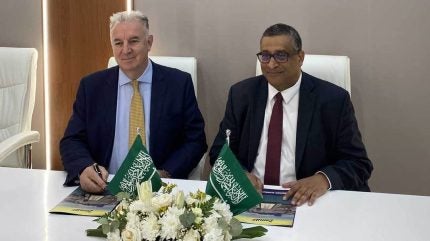
SAMI-L3Harris Joint Venture (JV) and Zamil Shipyards have signed a strategic memorandum of understanding (MoU) to develop ‘Saudi Made’ uncrewed surface vessel (USV).
The agreement will see the partners integrate autonomous technology into both current and future naval vessels.
L3Harris International vice president and SAMI-L3Harris JV vice chairman Dave Johnson said: “This MoU represents a significant step forward in our commitment to supporting the Kingdom of Saudi Arabia with autonomous vehicle technologies.
“In cooperation with Zamil Shipyards, we are positioned to transform maritime surveillance and mission execution by leveraging our joint venture and local industrial capabilities.”
This deal aligns with the objectives of Saudi Arabia’s General Authority for Military Industries to foster localisation by empowering local and international entities within the sector.
Under the terms of the MoU, Zamil Shipyards will take on the role of designing and constructing autonomous maritime platforms.
Concurrently, SAMI-L3Harris will be responsible for the integration of autonomous systems, sensors, and mission system capabilities into these platforms.
The partnership is expected to reach a milestone in 2025 with a series of on-water demonstrations.
Zamil Shipyards general manager Alastair Bisset said: “We are delighted to sign this MOU to create one of the first ‘Saudi Made’ unmanned surface vessels. We believe that USVs could be a game-changer in helping nations secure their borders, both above and below water, against the increasing nature of asymmetric threats.
“Through this initiative with SAMI-L3Harris, we intend to develop several modular variants to provide a wide range of surveillance and preventative capabilities.”
The collaboration between Saudi Arabian Military Industries (SAMI) and L3Harris Technologies focuses on the localisation of advanced communication systems, sensor systems, and integrated mission systems.
The JV was established through a Joint Venture Agreement (JVA) in June 2019, with commercial registration completed in August 2020.
It became fully operational in 2021.



